- Home
- Helen Forrester
The Latchkey Kid Page 2
The Latchkey Kid Read online
Page 2
Mrs. Donna Frizzell looked despondently out of her picture window. The unfenced oblong of grass in front of the house and the narrow path to the sidewalk were full of leaves twirling in the wind. Mr. Stych, during his last visit home, had already cleared the adjoining garden, and the Frizzell’s leaves were gaily invading his once tidy lawn. Mrs. Frizzell’s lips tightened as she guessed what Olga Stych’s remarks would be when she saw them.
That intolerable woman, she thought bitterly, had managed to become president of the Tollemarche Downtown Community Centre by a majority of a single vote, and Mrs. Frizzell had had to be content with the vice-presidency, which office she declared gave her all the work and none of the authority. (She gave no credit to Olga Stych for her undoubted talents as an organizer.) To make matters worse, Olga was also the secretary of the Noble Order of Lady Queen Bees – a pack of overdressed snobs, groaned Mrs. Frizzell, whose members set the standard for every social event in the city. Maybe, if she could squeeze a mink coat out of Maxie, it would help her towards the membership which always seemed to elude her by a vote or two, a vote strongly influenced, she feared, by Olga Stych. One day, she promised herself, if ever she got the chance, she would give Olga Stych her comeuppance.
In the meantime, since no amount of nagging would persuade Maxie to rake up the leaves or to allow her to employ a man to do it, she would have to do the job herself.
Mixed with the need to tidy up the garden was a desire to show her neighbours her new purple, slim pants and striped purple and yellow jacket. She therefore eased her thin shanks into these all too revealing pants, put a pair of gilt oriental sandals on her feet and hastily touched up the mauve polish on her toenails and fingernails. She peered anxiously into her six-foot-wide dressing-table mirror to see if any white hair showed after her last auburn tint, and found to her satisfaction that all her hair was the same improbable shade.
She went through the house door leading into the garage, seized a rake and plunged into the cold wind. She began to rake from the front of the house towards the road, then realized she had nothing in which to put the leaves. With an irritability caused as much by her slimming diet as by the lack of a box, she almost stamped down the stairs into the basement, which was comfortingly warm, and found a couple of cardboard boxes.
Working with feverish haste, for the wind was piercing through her elegant jacket and Gentle Curve bra underneath, she filled the boxes, staggered with them to a row of garbage cans in the back lane and dumped their contents into the bins. Her feet were icy cold in their open sandals when, on the fifth trip back to the front lawn, her patience was rewarded.
Mrs. Stych drew up at the kerb in her new European car, bought, needless to say, from Maxie’s arch-rival down in Edmonton. She heaved herself out and opened the trunk to display several large paper bags full of groceries. Mrs. Frizzell hastily drew in her stomach, tucked in her tail, and posed with her rake, just as she had seen the Hudson’s Bay Company model do when showing pants. A pair of University students passing by hastily averted their faces to hide their giggles.
Mrs. Stych, however, did not avert her gaze. She peered over the bag of groceries clasped to her bosom and was almost consumed by envy. Five feet high and weighing one hundred and seventy pounds, a veritable Humpty Dumpty of a woman, Mrs. Stych had no hope of ever being able to wear pants gracefully.
Mrs. Stych ate with all the avidity of one who has known starvation. Her father, an immigrant from the Ukraine, had carved his pig farm out of raw bush. Her pregnant mother had pulled the plough when they broke a part of their holding for wheat and vegetables, and Olga’s first memories were of carrying away stones from the furrows. They had known such hunger that even now Olga could not bring herself to throw away a single crumb, and always ate whatever was left after a meal.
Looking now at her plump, well-kept hands, two heavy diamond rings worn above her unexpectedly old-fashioned wedding band, it was hard to believe that her mother was a work-bent Ukrainian peasant who still wore a black kerchief over her hair and spoke little English.
Mrs. Stych fixed her button eyes upon the elegant figure of Mrs. Frizzell and bowled purposefully across the lawn. Her high, grating voice was caught by the wind and carried half a block, as she asked: “Aren’t Maxie able to do the leaves?”
“He’s up at Grande Prairie, seeing to his new garage and car lot.” She smiled, showing an excellent set of artificial teeth, as she rallied her forces. “Enterprising, that’s Maxie,” she added, her eyes agleam with malice.
While she spoke, she remembered Maxie’s grumble from behind his newspaper, the last time he had been home, when she had told him to do the leaves.
“Do ’em yourself,” he had said. “You ain’t got nuttin’ to do while I’m away up the Peace, not now Joann and Betty is married.” His pursed-up, babylike lips had quivered. “I got no time, you know that.”
In the tirade which immediately followed, Mrs. Frizzell had reminded him that she was a pillar of the community, all for the sake of his business. She was secretary of the Tollemarche United Church Willing Workers’ Group, vice-president (not president!) of the Tollemarche Downtown Community Centre, a driver for Cripples’ Transport, a member of the Car Dealers’ Wives Society, and, she would remind him, a member of the Committee for the Preservation of Morals. And, she would like him to know, the Morals Committee had just succeeded in having D.H. Lawrence’s books banned from the cigar stores.
Mr. Maxmilian Frizzell had never read a book since leaving school and did not know who Lawrence was, so he put down the newspaper and took up the Car Dealer and Garageman with what dignity he could muster. The next morning he departed, thankfully, for the North, to see his new garage and a silent, obliging Métis woman of his acquaintance.
The leaves remained on the lawn.
The high heels of Mrs. Stych’s new, mink-trimmed bootees were now sinking into the Frizzell lawn and threatening to snap at any moment, so she knew she must be quick. She therefore ignored Maxie’s undoubted enterprise, and asked: “Any news from Betty yet?”
Mrs. Frizzell brightened. She fell right into the trap, as she said: “Yeah, she got a daughter in Vancouver General yesterday. Don’t want me to go over yet. Her husband Barry’s taking care of the other two kids – he’s a real capable boy.”
“It must make yer feel old, being a grandmother for the sixth time,” promptly replied Mrs. Stych, her face carefully arranged to indicate that it was a disaster.
Mrs. Frizzell was not, however, so easily crushed. Scottish ancestors, one of whom had married a Cree, (who was, of course, never mentioned by any member of the family), had given her a physical and mental toughness which enabled her to fight methodically for anything she wanted badly. Now she wanted to squelch Olga. It had to be done, however, without giving too much offence – Mrs. Stych was, after all, a Lady Queen Bee. Old at fifty, indeed!
She smiled sweetly.
“At forty-five, I don’t mind. I married young and so did Joann and Betty.” She lifted her lance. “I’m just so glad they’re settled with good, respectable boys for husbands.”
Mrs. Stych winced. Mrs. Frizzell had no need to remind her that her neat, conforming sons-in-law were far more popular in their home town of Tollemarche than Mrs. Stych’s own son, Hank.
Hank, when Mrs. Stych thought of him at all, always gave her a headache. Consequently, she had done her best to ignore his existence. But Donna Frizzell never failed to remind her of his dragging progress through school, compared to Betty and Joann’s smart performances. Now, at nearly twenty, he was still struggling to pass his Grade 12 examinations in high school, having been assured by his father, the school, and society at large that the world held no place for a boy without his Grade 12. Mrs. Stych could many times have wept with humiliation when Donna hastened to tell her of yet another minor car accident in which his ancient jalopy had been involved, yet another girl with whom he had once been seen who was “in trouble”. For a boy who only worked part time in a supermarket
he had too much money, and this was another source of innuendo from Mrs. Frizzell. Olga herself was far too busy to worry about what Hank was doing, but she wished Donna would mind her own business. And now she had pierced her again on this sore spot.
Mrs. Stych clutched her groceries more tightly to her bosom and tried to heave her high heels out of the roots of the Frizzell grass. One day she would get even with Donna for this. Hank might be wild, but nobody had pinned anything serious on him yet. The Frizzell sons-in-law might wear halos, but when it came to financial success they were nowhere.
“Yeah,” agreed Mrs. Stych, at the same time disinterring her high heels. “They sure need to be good boys, being so hard up. Betty and Joann must have a hard time managing.”
Mrs. Frizzell had been feeling that victory in this verbal exchange was hers and had been preparing to leave the garden. Now, bent over a box, she nearly choked at this reference to her daughters’ poverty. She jerked herself upright, just in time to intercept a charming smile from Mrs. Stych, as she looked back over her shoulder on her way to her own front door.
Mrs. Frizzell, in a red glare of rage, for a moment imagined Mrs. Stych as a neatly wrapped bundle of well minced beef.
CHAPTER 3
Mrs. Stych had just set down the last of her bags of groceries on the kitchen counter and begun to unpack them, when there was the sound of a heavy truck drawing up outside her house.
“Mother!” almost wailed Mrs. Stych. “And the girls coming for bridge!”
She trotted into the living-room, where three bridge tables had already been set out, and peeped through the picture window.
Her mother was already clambering laboriously down from the seat beside the driver, displaying a lumpy mass of grey woollen stocking and woollen knickers in the process. Her brother was already changing gear, and as soon as the old lady was safely on the sidewalk the vehicle ground noisily forward, with its protesting load of smelly pigs, towards the market.
Mrs. Stych felt a little relieved. At least that humiliating old truck would not be parked outside her door when the girls arrived. She could just imagine the scathing looks with which Mrs. Josephine MacDonald, the president of the Noble Order of Lady Queen Bees, would have regarded it. Perhaps, she hoped guiltily, Joe would return to pick up her mother and take her home before any of the guests arrived.
The old lady’s footsteps could be heard, ponderous and threatening, on the front steps. Mrs. Stych vanished immediately into the kitchen and continued to put away groceries, as if unaware of her mother’s arrival.
The porch door clicked as her mother slowly entered. There was the sound of feet being carefully wiped on the doormat, as once sharply requested by Mrs. Stych soon after her marriage had taken her into polite circles. Two heavy farm boots were then heaved off. The door into the living-room was opened.
“Olga, where are you?” called her mother in Ruthenian, her brown, wrinkled face beaming. “I have come for three hours while Joe is selling the pigs.”
Mrs. Stych, untying her apron, bustled out of the kitchen and tried not to show her despair.
“Why, Mother!” she exclaimed, embracing the stout shoulders and implanting a kiss on her mother’s cheek. Is it really necessary for Mother to smell eternally of hens? she wondered, and ushered her into the kitchen so that the unmistakable odour should not permeate her carefully prepared living-room.
Mrs. Palichuk sank onto a scarlet kitchen chair and eased off her drab grey winter coat so that it draped over the back, retaining, however, the black kerchief which modestly veiled her hair. She was dressed in a clumsy black skirt and a heavy grey cardigan, and, in honour of the occasion, had put on her best apron, which was white and had been exquisitely embroidered by herself. It always astonished Olga Stych that her mother’s horribly distorted hands, with their thick, horny nails, could produce such delicate embroidery and could paint with such skill the traditional patterns on eggshells at Eastertide.
Mrs. Palichuk planted her stockinged feet squarely on the white and beige tiles of the kitchen floor, and looked around her. She enjoyed exploring the intricacies of her daughter’s kitchen. The electric toaster which turned itself off when the toast was done and the electric beater enthralled her. She was happy enough, however, to return to her own frame house, built by her husband after their first five bitter years, spent living in a sod hut. It was heated by a Quebec stove in the kitchen and she cooked with wood on another iron stove, and no cajoling by her widowed son, Joe, was going to make her alter her ways now.
“Expecting visitors?” Mrs. Palichuk asked, speaking again in Ruthenian.
As usual, Olga answered her in English. “Yeah,” she said, setting the coffee pot on the stove. She took out the electric beater and arranged it to beat cream, while Mrs. Palichuk watched, fascinated. “Eleven for lunch and bridge.”
In her heart Olga Stych hoped her mother would take the hint and depart. Then she realized that the older woman could not go without Joe to transport her, and she wondered what in earth she was to do.
Dimly, Mrs. Palichuk perceived that she was in the way, and it hurt her.
“I won’t disturb you,” she said. “I’ve brought my embroidery – I’ll sit quiet while you play.”
Mrs. Stych rallied herself. “It’s all right, Mother. You’re very welcome. It’s just you don’t play bridge.”
“Oh,” said her mother with a sniff, “I’ll be entertained enough, watching your fine friends.”
Mrs. Stych cringed at this remark. It was bad enough to have to produce a mother who smelled of hens, worse to have all one’s guests disconcerted by the beady eyes of an old country woman. She said nothing, however, but continued her rapid preparations for her guests.
The back screen door slammed and a second later her son Hank padded silently into the kitchen. He was a tall youth with very broad shoulders and a deep chest, a trifle plump like most North American boys, but giving an impression of great physical strength. His skin had a yellowy tinge and he had the same deepset black eyes as his mother and grandmother.
He unzipped his black jacket and flung it on a chair.
“Hi, Ma,” he said mechanically, and then realized that his grandmother was also present. His face lit up. “Hi, Gran,” he said with more enthusiasm, went across to her and embraced her with a bearlike hug.
Laughing and fighting him ineffectually, his grandmother roared pleasantries at him in a mixture of Ruthenian and broken English. At last he let her go, and, puffing happily, she straightened her kerchief and skirt. “How’s school?” she asked in Ruthenian.
Hank spoke no Ruthenian but he could understand the simple sentences his grandmother used – more easily, in fact, than her garbled attempts at English.
He made a wry face and shook his head, his eyes holding, at that moment, the same merry twinkle as his grandmother’s, a gaiety missing from his mother’s expression.
“He don’t work,” said his mother disapprovingly. “Always out somewhere. Did you do your homework last night, Hank?” she asked in a voice devoid of real inquiry.
He was very hungry and answered her query absently. “Yeah, I did.” Then he asked: “What’s cooking, Ma?”
“Got the girls coming for lunch and bridge. Make yourself a sandwich.”
Obediently Hank got a plate, took two slices of bread from the breadbox, and, after rummaging about in the refrigerator, found some luncheon meat, a glass of milk and a cardboard cup of ice cream. His grandmother watched, her toothless mouth agape.
In all the desperate, toiling years she had been in Canada, neither her husband nor her son had ever made themselves a meal, except on one or two occasions when illness had confined her to bed. Yet here was her grandson fending for himself, leaning amiably against a kitchen cupboard and eating a self-made sandwich, while his mother gave infinite attention to food for women who should have been at home attending to their own children. It was with difficulty that she refrained from making a sharp remark.
After a momen
t, she managed to say through tight lips: “Come out and visit us on Sunday.”
Hank looked uneasily at her. “I can’t,” he said. “Got a date.” Then, feeling that the reply was too abrupt, he added: “I’ll sure come out and help with any work Uncle Joe wants doing on the next weekend.”
Mrs. Palichuk smiled. “I know you will. Come then, work or no work.”
He agreed, and lounged away to his room, from whence the sound of his portable typewriter could soon be heard.
“He don’t really work,” said his mother crossly. “That typewriter used to go half the night. Now he don’t bring it home from school half the time.”
Mrs. Palichuk came to Hank’s defence.
“He seems to be keeping up his piano playing,” she said. “He was trying out the new one that Joe bought for his little Beth to learn on, and even I knew he was playing well.”
Olga grunted, and then admitted grudgingly: “Yeah, he practises on our old piano in the basement. Does some at school, too, I suppose. But he won’t try competing in the Festival – he’s too lazy.”
“You don’t give him enough time, you and Boyd,” said Mrs. Palichuk. “You never did encourage him. Always out gallivanting, and him home with a sitter or maybe nobody at all, for all I know.” She sniffed and wiped her nose with the back of her hand. “You didn’t even give him one of those fancy cookies just now,” she added in an aggrieved tone.
Mrs. Stych glared at the exquisite collection of cookies she was arranging on a tray. “He’s too fat,” she snapped. Her voice became defiant: “And what time did you and Dad ever spare for us?”

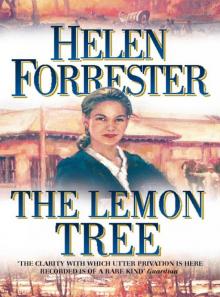 The Lemon Tree
The Lemon Tree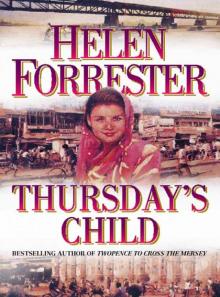 Thursday's Child
Thursday's Child Yes, Mama
Yes, Mama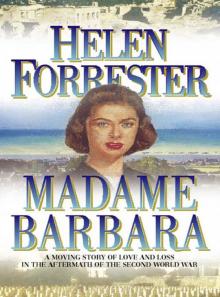 Madame Barbara
Madame Barbara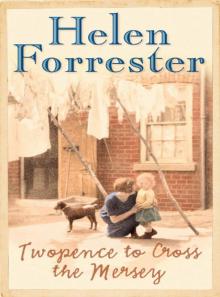 Twopence to Cross the Mersey
Twopence to Cross the Mersey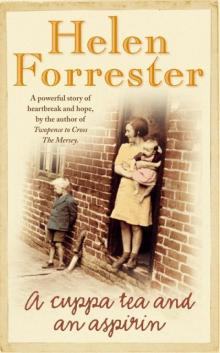 A Cuppa Tea and an Aspirin
A Cuppa Tea and an Aspirin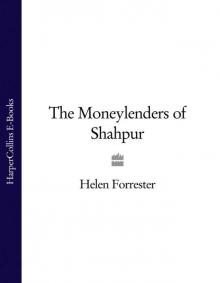 The Moneylenders of Shahpur
The Moneylenders of Shahpur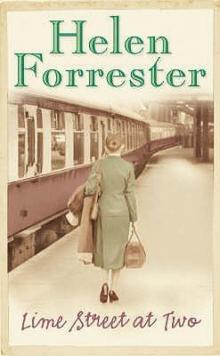 Lime Street at Two
Lime Street at Two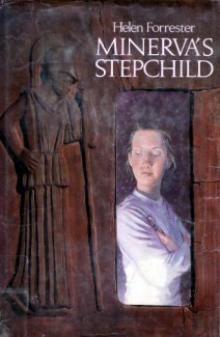 Minerva's Stepchild
Minerva's Stepchild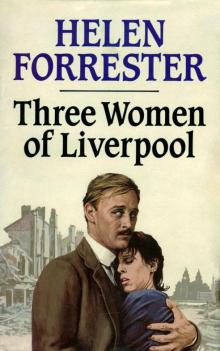 Three Women of Liverpool
Three Women of Liverpool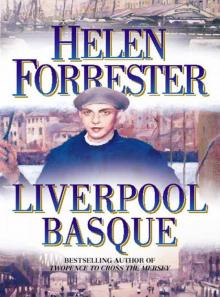 The Liverpool Basque
The Liverpool Basque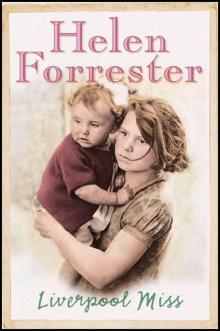 Liverpool Miss
Liverpool Miss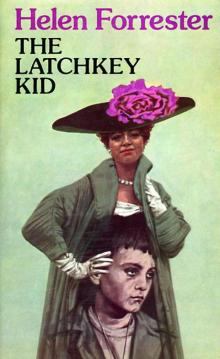 The Latchkey Kid
The Latchkey Kid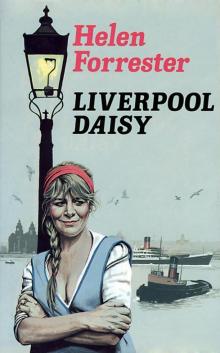 Liverpool Daisy
Liverpool Daisy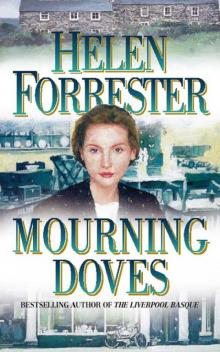 Mourning Doves
Mourning Doves